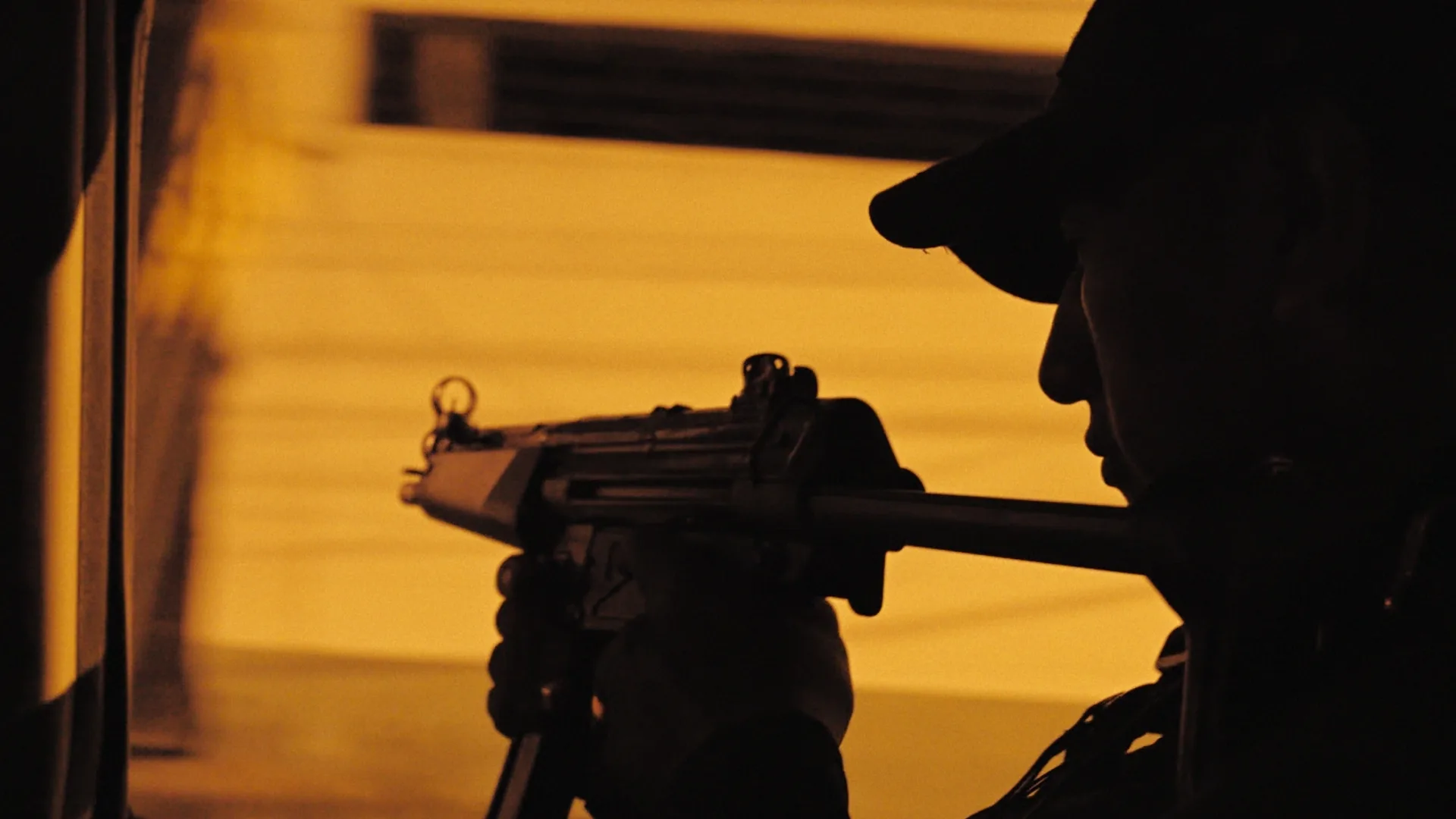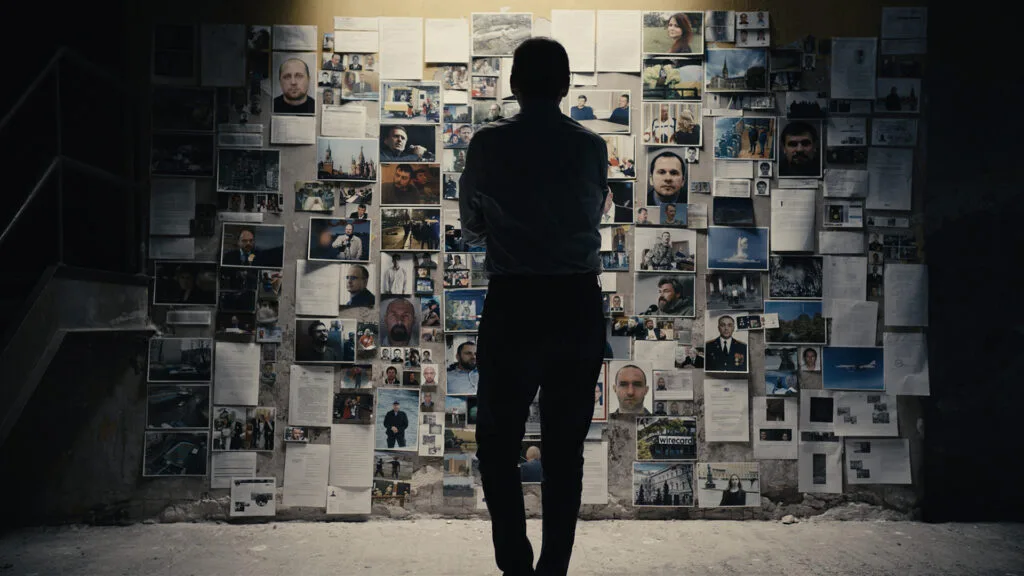Ecuador’s Military Detained an 11-Year-Old Boy. Then He Was Found Dead.
Facing a surge in gang violence and drug-linked crime, Ecuador’s government launched a military crackdown. Critics allege the military has ‘disappeared’ innocents, including 11-year-old Steven Gerald Medina Lajones.
November 11, 2025
Share
December 8, 2024, was the last day Ronny Medina saw his 11-year-old son Steven alive.
“He was a very cheerful, hyperactive boy,” Medina says of his “strong-willed” son, a fan of soccer and Spider-Man. “He loved other kids, and he liked to help my mother, his grandmother, with things around the house.”
That evening, Steven had gone to play soccer with his cousin Gino and other boys in the Ecuadorian city of Guayaquil. Earlier that year, with Ecuador facing a surge in gang violence and drug-linked crime, the Latin American country’s government had launched a military crackdown on the streets, including in Guayaquil, to restore order.
After finishing their game and buying some bread to eat, the group of boys were caught up in that crackdown.
“The military came. They surrounded us and started insulting us. So we ran,” Gino says in the above video, adding that Steven “was behind me, right next to me. Then I started running faster.”
“And when I looked back, I saw he wasn’t behind me anymore,” Gino says, and begins to cry.
Steven Gerald Medina Lajones’ death and his family’s quest for justice are among the stories that unfold in Drug War in Ecuador, a FRONTLINE documentary premiering Nov. 11. The film explores the stark human toll of the country’s drug and gang crisis, which has caused homicide rates to skyrocket — and also examines allegations that the military has “disappeared” innocent people in the resulting crackdown.

As the above video drawn from the documentary shows, surveillance footage from December 8 captured the military detaining Steven and beating another boy. Steven’s charred remains and those of three 14- and 15-year-old boys he was with — Nehemías Saúl Arboleda, Josué Arroyo and Ismael Arroyo — were found on Christmas Eve. Ecuador’s military said the soldiers released the boys alive and that gang members later killed them. A judge ordered 16 soldiers to be put in detention.
In the video, Steven’s mother, Silvana Lajones, describes the pain of identifying her young son’s remains.
“Now I wake up seeing that body, the body I saw, the one they handed over to me,” she says, crying.
Ecuador’s president, Daniel Noboa, has said his administration is on the side of justice and abuses will be prosecuted. He and the gang crackdown remain popular with many.
"Now I wake up seeing that body, the body I saw, the one they handed over to me."
But to some in the country, Steven and the three other boys, all of whom were Afro-Ecuadorian, are now “an icon of struggle, resistance and resilience” in the face of alleged state and structural violence. That’s according to Father José Antonio Maeso, a well-known gang violence mediator in Ecuador who also collects evidence of alleged abuses by the police and military.
“The four from Guayaquil have become a symbol,” Maeso says in the film. “They were the first proof, clear proof, that there were forced disappearances in Ecuador.”
Steven’s parents are determined to secure answers and accountability.
“I keep fighting,” Ronny says in the documentary, “because I don’t want other families to go through what we’ve lived.”
The soldiers who picked up Steven and the other boys are currently on trial for their role in the deaths.
For the full story, watch Drug War in Ecuador at pbs.org/frontline and in the PBS App starting Nov. 11, 2025. It will premiere on PBS stations (check local listings) and on FRONTLINE’s YouTube channel at 10/9c and will also be available on the PBS Documentaries Prime Video Channel. Drug War in Ecuador is a Duskwater Films production for GBH/FRONTLINE and ITV in association with The Big Story Films. Filmed and directed by Marcel Mettelsiefen. The producers are Stephen Ellis, Marcel Mettelsiefen, Mayte Carrasco and Ahisha Ghafoor. The associate producer is Esme Ramlal. The senior producer is Eamonn Matthews. The executive producer for ITV is Tom Giles. The editor-in-chief and executive producer of FRONTLINE is Raney Aronson-Rath.
Keep Our Journalism Strong. Donate Today.
Your support makes it possible for FRONTLINE to produce bold investigative documentaries on the issues that matter most. Donate today to help sustain this work through the months and years ahead.

Related Documentaries
Latest Documentaries
Related Stories
Related Stories
Explore
Policies
Teacher Center
Funding for FRONTLINE is provided through the support of PBS viewers and by the Corporation for Public Broadcasting, with major support from Ford Foundation. Additional funding is provided the Abrams Foundation, Park Foundation, John D. and Catherine T. MacArthur Foundation, Heising-Simons Foundation, and the FRONTLINE Trust, with major support from Jon and Jo Ann Hagler on behalf of the Jon L. Hagler Foundation, and additional support from Koo and Patricia Yuen. FRONTLINE is a registered trademark of WGBH Educational Foundation. Web Site Copyright ©1995-2025 WGBH Educational Foundation. PBS is a 501(c)(3) not-for-profit organization.






















